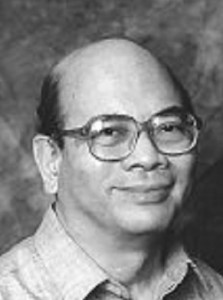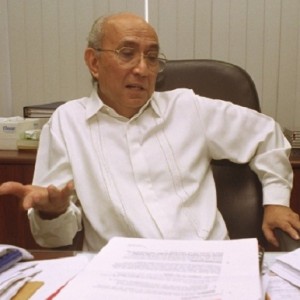MANILA, Philippines—Two framers of the 1987 Philippine Constitution on Tuesday gave differing views on why the country has not developed economically as it should during the course of the oral argument on foreign ownership of utility firms.
Amici Curiae (friends of the court) Fr. Joaquin Bernas and Dr. Bernardo Villegas of the Center for Research and Communication at the University of Asia and the Pacific, both members of the 1986 Constitutional Commission, were invited by the Supreme Court to shed light on the definition of the word “capital” regarding questions of foreign ownership of public utility companies.
During Tuesday’s oral argument on the foreign ownership composition of utility firms, Villegas said that with the Constitutional restrictions in foreign investments, the Philippines had a “sorry experience in attracting foreign investors.”
“Restrictions to foreign investments give rise to corruption and harassment of foreign investors,” Villegas told the high court.
Villegas has been pushing for the amendment of the economic provisions of the Constitution, saying that only “few Filipino elites” are engaged in the ownership of corporations.
Bernas, however, said the Filipino First definition under Article 12 of the 1987 Constitution stemmed from the “desire for the national economy not to be controlled by aliens.”
“What did the people on the street vote for when they ratified? What they voted on was not on the debates… but on their understanding of the word ‘capital’ in their everyday meaning encountered in everyday life,” Bernas said.
Bernas averred that the definition of the word “capital” does not entail a constitutional amendment.
“The problem is more statutory,” Bernas said, saying that it should be the Foreign Investment Act or the law that regulates foreign investments that should be debated in Congress.
The five-hour oral arguments stemmed from the motions for reconsideration separately filed by the Philippine Long Distance Telephone Co. (PLDT) and the SEC on the high court’s June 2011 ruling on the petition of PLDT stockholder Wilson Gamboa, who alleged that the Constitutional provision on foreign ownership of Philippine public utilities was violated in the case of PLDT.
In its ruling on the legal issue on the definition of the term “capital” in Section 11, Article XII, of the Constitution, the Supreme Court held that this “refers only to shares of stock entitled to vote in the election of directors,” or common shares. The high court also directed the SEC to apply this definition in determining the extent of allowable foreign ownership in PLDT, and impose sanctions if there is a violation of this particular provision of the Constitution.



